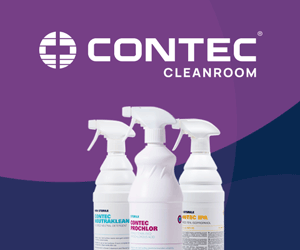Natural antimicrobial chemical proven to kill C.diff spores
Alternative to traditional toxic sporicidal disinfectants could help reduce the growing number HAIs
UrthTech, of Michigan in the US, has found its patented Urth chemical technology is an effective antimicrobial agent against Clostridium difficile spores. Reports from ATS Labs in Eagan, Minnesota, confirmed that two variants of Urth demonstrated a greater than 99.9999% (> 6.76 log10) reduction of C.diff spores (ATCC 700792) following a 10-minute exposure time when tested at room temperature (19.9°C).
The Urth technology is the intellectual property founded by UrthTech, which powers the product the company currently markets as UrthPRO – a hospital-level disinfectant that is effective against mould, bacteria, fungi and the Influenza A viruses (including the H1N1 virus). Other products using the Urth technology include a hand sanitiser, an antimicrobial hand soap, surface cleaner and disinfectants and a chemical sterilant.
“We're excited to get the news that this technology is getting positive results, especially with the Clostridium difficile superbug,” said Robert George Jr, president of UrthTech. “The major advantages we have with what we are calling UrthMED is its compatibility with virtually any surface, its user friendly nature and its impressive efficacy.”
UrthTech plans to continue testing UrthMED in the coming months, and expects to launch this breakthrough product some time in the next year.
This new development is an important advance in infection control products for places like hospitals, nursing homes and clinics, the company claims. “We want to help control the severity of infection problems plaguing the healthcare industry. These issues don't just affect the person contracting the illness, but cause a trickle-down effect on the expense of providing medical coverage. People contract preventable illnesses every day and it's in part due to the fact that safe and effective products are not available to help healthcare professionals disinfect potentially hazardous points of contact,” said George.




